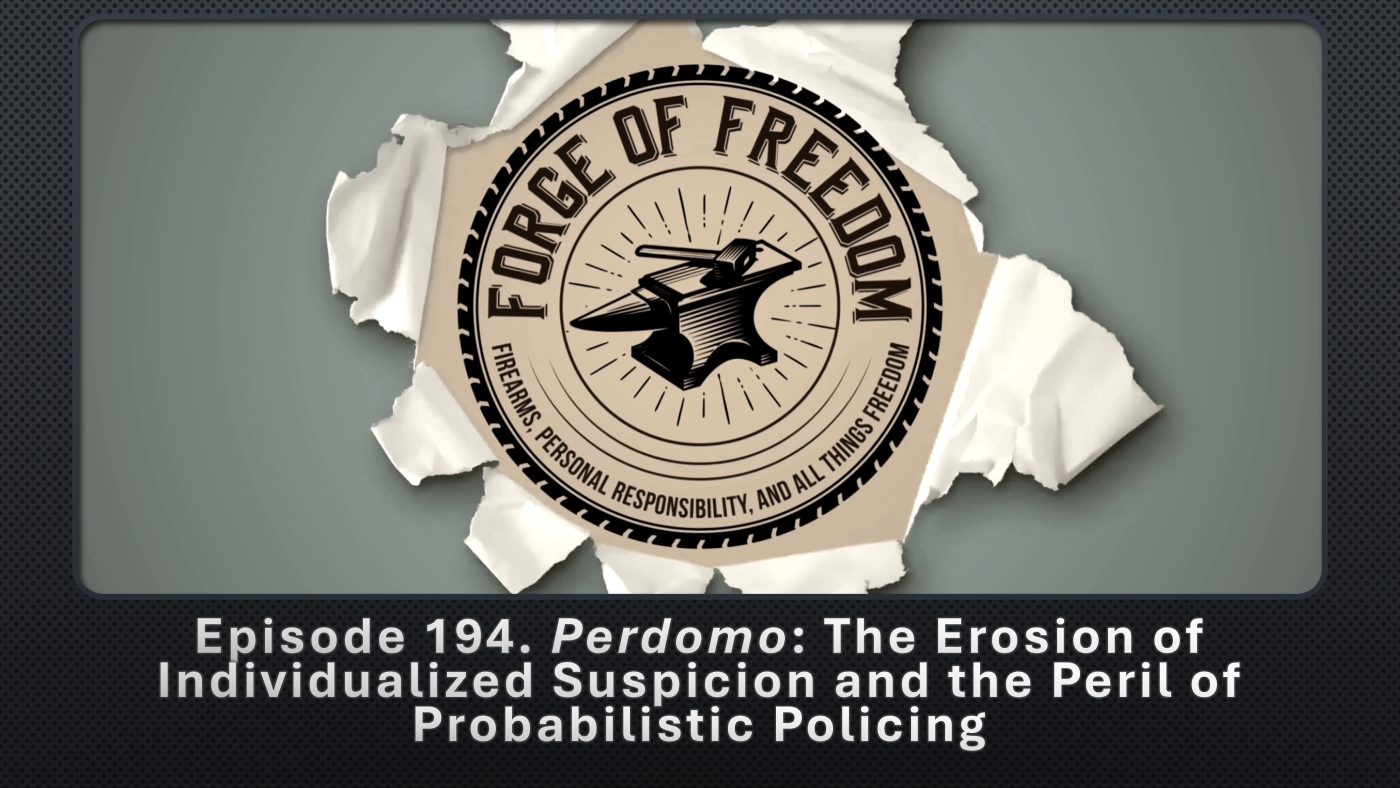Show Notes
Episode 194. Perdomo: The Erosion of Individualized Suspicion and the Peril of Probabilistic Policing
In this episode of the Forge of Freedom podcast, host Alex Ooley discusses the Supreme Court case Noem v. Perdomo, which has significant implications for immigration policies and individual liberties. The case revolves around the legality of detaining individuals based on generalized factors such as race and language, raising concerns about probabilistic policing and its potential to erode constitutional protections. Ooley explores the legal proceedings, the shadow docket’s role, and the differing speeds of court decisions regarding executive power versus individual rights.
Chapters
00:00 Introduction to the Case and Its Implications
05:03 The Legal Proceedings and Court Decisions
10:23 The Shift to Probabilistic Policing
15:33 Comparative Analysis of Court Decisions
Resources
The Reload w/ Professor Rory Little
https://www.youtube.com/watch?v=rYsCbjyQ_ww
Professor Rory Little on SCOTUSblog
https://www.scotusblog.com/2025/09/roving-patrols-reasonable-suspicion-and-perdomo/
Perdomo
https://www.supremecourt.gov/opinions/24pdf/25a169_5h25.pdf
https://www.scotusblog.com/cases/case-files/noem-v-perdomo/
Rory Little
https://www.uclawsf.edu/people/rory-little/
https://www.scotusblog.com/author/rory-little/
The Reload
https://thereload.substack.com/
https://thereload.fireside.fm/hosts/stephengutowski
YouTube: @TheReloadSite
X: @StephenGutowski
Takeaways
- The Perdomo case could reshape immigration policies.
- Probabilistic policing may lead to unjust detentions.
- The shadow docket allows the Supreme Court to make swift decisions without full transparency.
- Justice Kavanaugh’s concurrence raises concerns about expanding executive power.
- Justice Sotomayor’s dissent highlights the risks of racial profiling.
- The disparity in court speed suggests a bias towards executive authority.
- Probabilistic reasoning could justify invasive government actions.
- The Fourth Amendment’s protections are at risk with generalized suspicion.
- The case serves as a warning for all individual liberties, not just immigration.
- Future court decisions will be critical in defining the limits of executive power.
Keywords
Supreme Court, immigration case, Nome vs. Perdomo, shadow docket, probabilistic policing, individual liberty, Fourth Amendment, executive power, Justice Kavanaugh, Justice Sotomayor
DISCLAIMER: This podcast is for informational purposes only and should not be considered legal, medical, or financial advice. The views expressed in this podcast are those of the hosts and guests and do not necessarily reflect the views of any organizations or individuals they may mention. The hosts and guests are not liable for any damages that may result from someone listening to this podcast.

